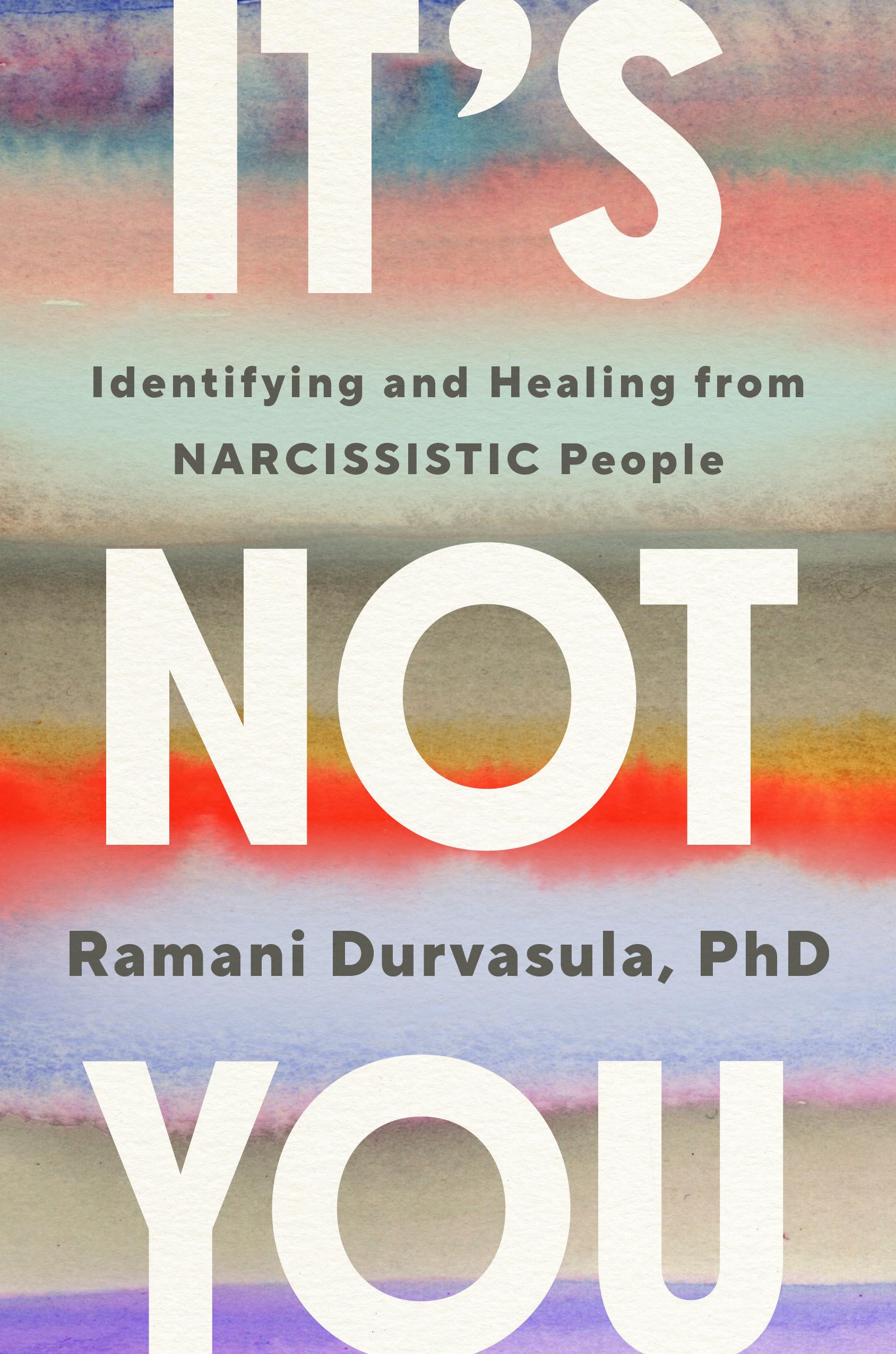
It's Not You: Identifying and Healing from Narcissistic People
Ramani Durvasula
About the Author

Ramani Durvasula
Questions & Answers
The book addresses the complexities of narcissistic relationships by providing a comprehensive understanding of narcissism, its impact on individuals, and the healing process. It debunks myths about narcissism, clarifies its spectrum from mild to severe, and emphasizes that it's not a clinical diagnosis but a personality style. The book highlights the damaging effects of narcissistic abuse, including betrayal, manipulation, and gaslighting, and explores the vulnerabilities that make individuals susceptible to such relationships. It encourages embracing radical acceptance, navigating grief, and rewriting personal narratives to foster healing and growth. The book also offers strategies for those who choose to stay in the relationship, emphasizing self-care, setting boundaries, and soul distancing to protect oneself and heal.
The author, Dr. Ramani Durvasula, offers a variety of strategies and tools for healing and recovery from narcissistic abuse. Key approaches include:
- Radical Acceptance: Acknowledge the unchangeability of narcissism and the abuse, and accept the process of healing, whether staying or leaving the relationship.
- Realistic Expectations: Understand that healing is a process with ups and downs, and manage expectations accordingly.
- Mindfulness and Slowing Down: Practice mindfulness to become aware of vulnerabilities and patterns, and slow down to be more intentional in actions.
- Grief Processing: Recognize and process the grief associated with narcissistic abuse, including the loss of opportunities and sense of self.
- Building Resistance: Develop narcissist resistance through tools like the "Ick List," "Entering the Tiger's Cage," and "The Lists" to recognize and avoid toxic patterns.
- Therapy and Support: Seek therapy and support groups to process emotions and gain validation.
- Rewriting Your Story: Reflect on the impact of the narcissistic relationship and rewrite your narrative to focus on personal growth and healing.
- Paying It Forward: Share your experiences and knowledge to help others and contribute to the healing process.
These tools and strategies aim to help individuals heal, grow, and thrive after experiencing narcissistic abuse.
The book challenges common misconceptions about narcissism by emphasizing that it is a personality style, not a clinical diagnosis. It debunks myths such as narcissism being exclusive to men or simply a form of bragging. It highlights that narcissism exists on a continuum, from mild to severe, and can manifest in various forms. The book also addresses the myth that narcissism is a disorder, explaining that it's a personality trait and not a medical condition. It underscores the significant impact of narcissistic behavior on individuals, including the emotional and psychological harm caused by narcissistic abuse, and provides a framework for healing and recovery.
The concept of 'radical acceptance' plays a crucial role in healing from narcissistic abuse. It involves acknowledging the unchangeability of the narcissistic behavior and the person's inability to change. This recognition helps individuals move forward by releasing the futile hope of changing the narcissist and focusing on their own healing. Radical acceptance allows survivors to detach from the narcissist's reality, reduce self-blame, and clarify their own experiences. It is a gateway to healing as it enables individuals to focus on self-growth, set boundaries, and cultivate self-compassion. It also helps in managing realistic expectations and coping with the aftermath of narcissistic relationships, whether staying or leaving. By embracing radical acceptance, survivors can begin to rebuild their lives, reclaim their identities, and move towards a more empowered and fulfilling future.
The book encourages survivors to embrace their vulnerabilities by acknowledging them as valuable and integral parts of their identity. It emphasizes that vulnerabilities, like empathy and optimism, can make individuals more susceptible to narcissistic relationships but also possess strengths that can be harnessed for healing. The book suggests understanding one's backstory, including family dynamics, cultural messages, and personal experiences, to recognize how these factors contribute to vulnerabilities. By doing so, survivors can develop self-awareness, set boundaries, and cultivate safe spaces. The book also promotes mindfulness, education about narcissism, and the importance of support networks. It encourages survivors to identify their strengths, work through guilt, and revise their narratives to focus on their authentic selves, ultimately using their vulnerabilities as a foundation for growth and healing.